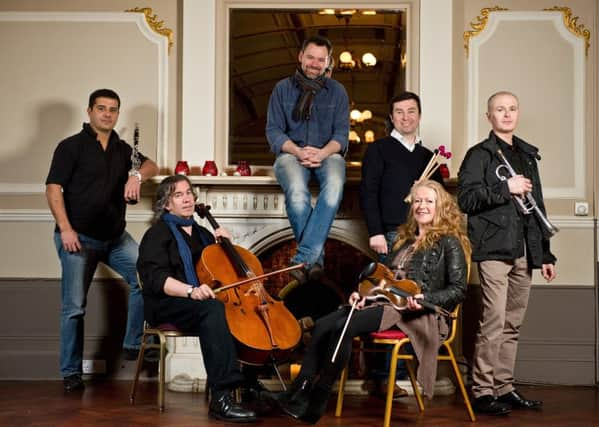Sound Festival review: By Reason Of Darkness | Red Note Ensemble & Griffyn Ensemble


The opening evening of Sound, Scotland’s Festival of New Music, began with a world premiere performed at dusk in King’s College Quad at Aberdeen University. A festival commission, composer Phillip Cooke’s By Reason of Darkness scores verse 37 from the Book of Job for a community choir. Influenced by Gaelic psalm singing, and designed for outdoor performance using tubular bells as the sole instrumental accompaniment, this was a highly effective piece full of texture and rich tones. With the choir encircling conductor Kathleen Cronie, it proved powerful and atmospheric.
Sky, and whatever lies beyond, was also a theme in the second performance, held in King’s College Chapel. The programme represented a collaboration between Australia’s Griffyn Ensemble and Scotland’s Red Note Ensemble. Southern Sky was created for Griffyn by Estonian Urmas Sisask. Inspired by astronomy following visits to Australian observatories, this illuminating work demonstrates his fascination with both stars and the Aboriginal rituals that took place beneath them. Griffyn’s director Michael Sollis explained the thinking behind each movement as the piece progressed. The result was joyful one moment, ethereal the next, with bright, sharp, sparkling sounds, passages of rattling rhythms, then mysterious and ancient tones illuminating the wonders of the night sky, well performed by the versatile Griffyn players.
Advertisement
Hide AdAfter Griffyn captured the skies of the Southern Hemisphere, Red Note explored the North. Composer James Clapperton is originally from Banchory but now based in Harstad, Norway. Arranged in four movements, his Northern Skies portrays the contrasting skies of Norway, Iceland, Russia and Scotland. The unpredictable nature of the Aurora Borealis was presented as celebratory one moment, peaceful the next. Icelandic sagas, glaciers and remote landscapes inspired rich, lyrical, flowing music. The tundra of the Russian Arctic, meanwhile, was represented by chilling, harsh sounds, and Scottish skies were evoked through hints of traditional rhythms and lilting phrases. Reliably adept, Red Note performed this rewarding piece with their accustomed vigour, precision and imagination.
This was a significant evening in many ways – sizeable audiences for new music are never a given, and sceptics might argue that hosting such events in north-east Scotland is stretching the risk too far. But both quad and chapel were full, audiences thrilled. Sound continues to triumph, demonstrating that imaginative, cutting-edge yet accessible programming and inspired commissioning can produce radical results.